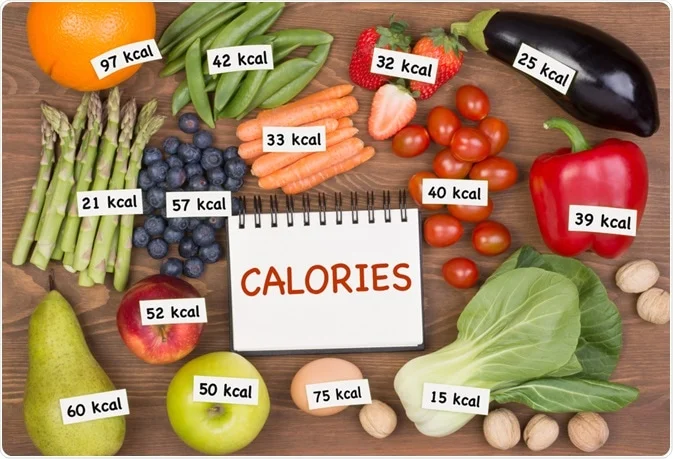
Menu

In the pursuit of a healthy lifestyle, understanding average daily calorie intake is paramount. Our bodies require a balance of nutrients and energy to function optimally, and caloric intake plays a crucial role in achieving this balance. In this comprehensive guide, we will explore the significance of average daily calorie intake, factors influencing caloric needs, and how to effectively manage calorie intake for overall health and wellness. Additionally, we will recommend our Daily Calorie Intake Calculator as a valuable fitness calculator tool for individuals seeking personalized guidance on their nutritional journey.
Calories are units of energy derived from the foods and beverages we consume. They serve as fuel for our bodies, powering essential functions such as breathing, circulation, and digestion, as well as physical activities ranging from walking to intense exercise. Understanding the role of calories in our diets is crucial for maintaining a healthy weight, supporting metabolism, and meeting nutritional requirements.
Caloric needs vary from person to person and are influenced by a multitude of factors, including age, gender, weight, height, body composition, metabolism, activity level, and overall health status. Younger individuals typically have higher calorie needs due to growth and development, while older adults may require fewer calories due to changes in metabolism and activity levels. Men generally have higher calorie needs than women due to differences in body composition and muscle mass. Additionally, individuals with higher levels of physical activity or muscle mass require more calories to fuel their bodies.
Achieving a balance between caloric intake and expenditure is essential for maintaining a healthy weight and supporting overall health and wellness. Consuming more calories than the body needs can lead to weight gain and an increased risk of chronic diseases such as obesity, diabetes, and heart disease. Conversely, consuming too few calories can result in nutrient deficiencies, fatigue, and impaired physical performance.
To manage caloric intake effectively, it’s essential to focus on nutrient-dense foods that provide essential vitamins, minerals, fiber, and antioxidants. These include fruits, vegetables, whole grains, lean proteins, and healthy fats. Portion control is also crucial, as even healthy foods can contribute to weight gain if consumed in excessive amounts. Paying attention to hunger and fullness cues, eating mindfully, and avoiding distractions during meals can help prevent overeating.
For individuals seeking personalized guidance on their nutritional journey, the Weights And Glory Daily Calorie Intake Calculator offers a valuable resource. This user-friendly tool is designed to help individuals determine their daily calorie needs based on factors such as age, gender, weight, height, activity level, and fitness goals. By inputting relevant information into the calculator, users can receive personalized recommendations for daily calorie intake to support their health and wellness objectives.
Understanding average daily calorie intake is essential for achieving and maintaining a healthy lifestyle. By balancing caloric intake with expenditure and focusing on nutrient-dense foods, individuals can support their overall health and wellness goals. The Weights And Glory Daily Calorie Intake Calculator serves as a valuable tool for individuals seeking personalized guidance on their nutritional journey, providing tailored recommendations to help optimize caloric intake and support long-term health and wellness. Additionally, incorporating the resistance band set into your fitness routine can enhance your physical activity level, contributing to overall calorie expenditure and further supporting your health and wellness journey. Embrace the power of informed nutrition and fitness and take the first step towards a healthier, more vibrant you.
1. Are 1,200 calories enough for a day?
A: Whether 1,200 calories are enough for a day depends on various factors such as age, gender, weight, height, activity level, and overall health status. For some individuals, particularly those with lower energy needs or trying to lose weight, 1,200 calories may be sufficient. However, it’s essential to ensure that these calories come from nutrient-dense foods to meet nutritional requirements. Consulting with a healthcare professional or registered dietitian can provide personalized guidance on calorie intake.
2. How many calories should I eat a day by age?
A: Caloric needs vary by age and are influenced by factors such as metabolism, activity level, and overall health. As a general guideline, adult women typically require between 1,600 to 2,400 calories per day, while adult men may need between 2,000 to 3,000 calories per day. However, these ranges can vary based on individual factors such as weight, height, and activity level. Consulting with a healthcare professional or registered dietitian can help determine personalized calorie needs based on age and other factors.
3. What is a healthy calorie intake per day?
A: A healthy calorie intake per day depends on individual factors such as age, gender, weight, height, activity level, and overall health goals. Consuming a balanced diet that provides sufficient calories to support energy needs while meeting nutritional requirements is essential for overall health and wellness. Aim to include a variety of nutrient-dense foods such as fruits, vegetables, whole grains, lean proteins, and healthy fats in your diet to ensure adequate calorie intake and promote optimal health.
4. How to calculate calories?
A: Calculating calories involves determining your daily caloric needs based on factors such as age, gender, weight, height, activity level, and health goals. One common approach is to use an online calorie calculator or formula to estimate your Basal Metabolic Rate (BMR), which represents the number of calories your body needs to maintain basic physiological functions at rest. From there, you can adjust your calorie intake based on your activity level and goals. Additionally, keeping a food diary and tracking your calorie intake can help you become more aware of your eating habits and make informed choices about your diet.